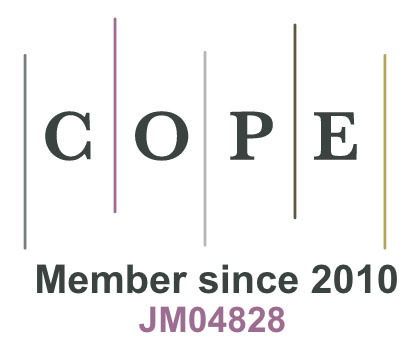LGBTQI+ Migrants’ Experiences with Nurses in Canada
We are now featuring the ANS article titled ““Ally Theater Is a Problem:” LGBTQI+ Migrants’ Experiences With Nurses in Canada” authored by Roya Haghiri-Vijeh, PhD, RN, BN, MN, and it is available for free download while it is featured! Here is Dr. Haghiri-Vijeh’s description of her work that she shared for ANS readers!
My research and professional journey with a focus on needs of migrant 2S/LGBTQI+ communities started over a decade ago. 2S/LGBTQI+ stands for Two-spirit, lesbian, gay, bisexual, trans, queer, intersect and the “+” is inclusive of diverse sexual orientations (e.g., pansexual), gender identities, and gender expressions (e.g., nonbinary) that are not explicitly named in the initialism. Several years ago, a nurse, who was in an administrative role and claimed to be focused on advocacy for marginalized people in Canada, told me, “You should reconsider your topic, because it won’t be safe to return to Iran for a visit by being engaged in this work!” I should add that this nurse had a visible “positive space” sign on their desk. This comment highlighted personal values that may impact how nurses engage in allyship and advocacy.
Both stigma and discrimination, including a lack of knowledge of and a sense of discomfort in providing care to 2S/LGBTQI+ migrants, manifested themselves in my encounters with nurses, nursing students, faculty, and administrators. I heard comments such as, “They are in Canada now. It is safe here!” Despite the work of nurses as well as allied social and healthcare scholars, practitioners, and activists, some nurses continue to have a limited understanding of the experiences of 2S/LGBTQI+ migrants in the Canadian context, and 2S/LGBTQI+ migrants continue to have troubling experiences with nurses.
Within my research study, I analyze 2S/LGBTQI+ migrants’ encounters with nurses by applying a Gadamerian hermeneutic approach with intersectionality as an analytical lens. I conducted 18 semi-structured, in-depth, individual interviews. Two groups of informants participated in this study: (a) sixteen 2S/LGBTQI+ migrants who received care from nurses and other healthcare professionals in Canada; and, (b) five nurses or nursing students who experienced, observed, heard, or witnessed the provision of nursing care to 2S/LGBTQI+ migrants. Approaching analysis from an intersectional lens, I observed how 2S/LGBTQI+ migrants’ experiences were shaped by considerations of physical, mental, and spiritual well-being, which intertwined with race, ethnicity, migration status, sexual orientation, gender identity, and gender expression. Furthermore, I found that migration status added another layer of complexity to the marginalization of 2S/LGBTQI+ people, which required intentional allyship from nurses.
In this article, the concept of “ally theater” is used as a metaphor to depict meaningless acts of allies’ support for 2S/LGBTQI+ migrants. I underscore how the nursing profession has claimed to be affirming of diverse communities; nevertheless, nurses can do better, which is beyond one dimensional, performative act in education, practice, and policy. Drawing on normative ideologies underpinning performative allyship, a theoretical discussion with selected findings is presented on how 2S/LGBTQI+ migrants experienced cynical comments and unsacred seriousness in play with nurses in practice. In addition, nurses’ genuine acts of allyship with 2S/LGBTQI+ at various practice settings are presented.






Trackbacks & Pingbacks